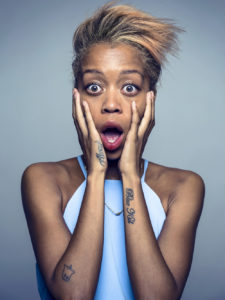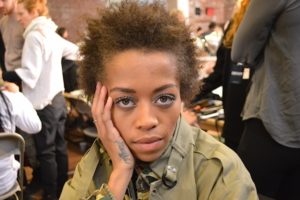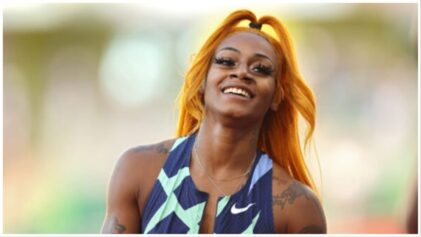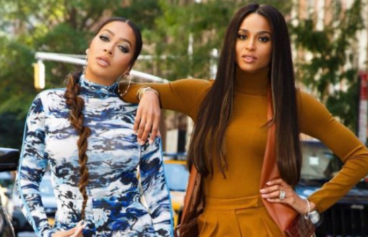As a few more Black women have managed to push open the doors to the modeling industry, they are starting to find that the current beauty standards are less than welcoming when it comes to their natural hair.
The entire point behind increasing diversity in the modeling industry is to support the idea that there are many different depictions and portrayals of beauty that come in varying skin complexions, heights, sizes and builds.
For this reason, some Black women were hopeful when more Black models finally began emerging in an industry known for its whitewashed runway shows and lack of Black beauties.
That excitement, however, was short-lived.
The lack of Black talent in the modeling industry has also led to a stunning lack of knowledge about Black hair.
Former DKNY campaign model and NYC It Girl Brandee Brown has been dealing with this problem for quite some time, but throughout her years in the industry it has still not been satisfactorily handled.
She shows up for hair and makeup only to discover that the stylists have absolutely no idea what to do with her natural locks and are downright confused by her hair’s natural texture.
All of the products and styling tools are clearly made for a finer, silkier texture of hair—a white woman’s texture of hair.
Brown, typically one of the few Black women backstage prepping for a fashion show or photoshoot, is the odd model out who may or may not actually have her hair styled before it’s time for her to hit the runway or get in front of the camera.
Even at some of the country’s most popular fashion shows, Brown is faced with the same dilemma of dealing with stylists who are overwhelmed by her natural hair.
“They started picking up my hair like little monkeys, lifting it up and examining it like it was out of this world,” she said, according to Refinery 29, as she recalled her experience at New York Fashion Week.
For this show she needed a “wet look,” which encouraged the confused stylists to start spraying down her hair even after she explained what moisture would do to it.
“It’s going to curl up if you do that,” she warned. The stylist continued spraying water on her head.
Before the petite beauty knew it, she looked up to discover a complete mess on her head.
“I turned to the side, and my hair was literally sticking straight out in the back of my head,” she continued. “It looked like I was in a wind tunnel.”
The solution was to whip out all the blow dryers and flat irons in the room and straighten her hair.
She explains that is the norm for Black girls in the modeling industry. The options are using heat to straighten and style your hair or hiding your natural hair under weave. In both cases, Black women were to be styled in a way that would help them blend in with white beauty standards.
While Brown explains she’s a New Yorker with tough skin, she also said that shrugging off the problem isn’t going to fix it.
Natural Black beauty is not being embraced in the industry and Black models are being made to feel uncomfortable and self-conscious about their natural hair.

She has even been pushed to hire her own stylist to do her hair for shows and shoots after so many failed encounters with the stylists available to the models on set.
It’s perhaps one of the only ways she can stand a chance at getting her natural hair out on the runway and featured in campaigns.
Natural hair is rarely spotted in the fashion industry and loose curl patterns and styled looks are often pushed into the public spotlight as “natural” looks.
So while “natural” hair is becoming the new trend, leaders in the fashion industry are still hesitant to bring Black women with natural kinky, curly hair to the forefront.
“There’s a pressure among Black models to be relaxed,” she added. That’s the best way the girls can assure they will be booked again, made to feel comfortable on set and won’t have to deal with the hassle of a botched hairstyle.
But by pushing these Black beauties to hide their natural tresses, fashion leaders are reinforcing the negative perception that natural Black hair isn’t a part of true beauty.
Instead, they are encouraged to trade in Afros and kinky twists for the “beachy waves” and “banana curls” that are often promoted as the new, modern natural look.
This ultimately allows them to tote a message of diversity and embracing several beauty standards when in reality they are being just as racially discriminatory as they were in the past.
“It would just be cool to see an editorial in a major fashion magazine with kinky, curly hair,” Brown said. “If you’re a jeweler, do you only work with one cut of diamond? Everything needs to be represented, not just a certain kind of Black beauty.”


